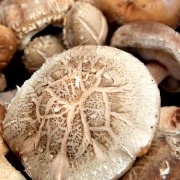 Photo: Getty Images
Photo: Getty Images
When you think about food allergy, you may immediately think about peanuts. There are actually more children who are allergic to dairy than to peanuts, and more adults who are allergic to shellfish than to peanuts. But peanut allergy is probably the most talked about of all food allergies because peanuts often trigger the most serious symptoms of all food allergies.
What is a food allergy?
When we eat most foods, our body recognizes the food particles as something good for the body. But when we are allergic to a particular food, called an allergen, the body sees it as a threat and creates antibodies to fight the dangerous particles. Food allergy can cause a variety of symptoms including hives, swelling around the mouth, itchy skin, runny nose, and stomach problems including nausea and diarrhea. The most serious allergic reaction is anaphylaxis, which is a full body reaction that can make the tongue and airway swell and cause a sudden drop in blood pressure. Anaphylaxis makes it hard to breathe and can result in death.
Problems with peanuts
People with peanut allergy are more likely than people with other food allergies to develop anaphylaxis. Eating peanuts or any food containing peanut products, such as peanut butter or peanut oil, is one way to trigger a reaction. One of the problems with peanut allergies is that some people are so sensitive they can have a reaction just by touching a surface that has peanut residue on it. This is one of the reasons peanut products are banned from the classroom of a child with peanut allergy. It is too easy to get a smear of peanut butter on something that will trigger a reaction.
Some people with peanut allergies fear they can have an allergic reaction just by smelling peanuts in the air. While there is no scientific support for the scent of peanuts causing a reaction, it is possible for someone who is very sensitive to peanuts to have a reaction after inhaling dust or sprays containing peanut particles, such as peanut flour or peanut oil cooking spray.
Cross-contamination with peanuts
There are many foods that may contain peanuts or peanut products. Some people who are allergic to peanuts are also allergic to tree nuts such as almonds or cashews. If you are allergic to peanuts, be wary of any food that claims to contain other nuts since peanuts may be substituted or accidentally included in during processing.
Other sources of peanut allergen include:
• Sauces – chili sauce, hot sauce, gravy, and salad dressings are just a few. Asian cooking often includes peanut sauce as well as peanuts.
• Desserts – pudding, cookies and even hot chocolate may contain peanuts
• Pet food – particles of dry pet food can drift onto cooking surfaces or foods and may cause a reaction on the skin if the pet food is handled.
• Vegetarian products – peanuts may be substituted for meat as a source of protein.
Even if you are not allergic to tree nuts, you will need to be wary of products that contain any kind of nut. Some alternative nut butters are made in the same processing plant on the same equipment as peanut butter. Anything that touches peanuts, whether in processing, in the kitchen or at a serving station at a buffet can be a source of cross-contamination where peanut particles can migrate onto other foods. Other situations to avoid include ice cream parlors where scoops are shared between flavors and peanut topping can get into anything served.
Read the labels
The only way to avoid an allergic reaction is to avoid every possible source of peanuts. Read all food labels and learn what other names peanut products can be listed under. Because peanuts are one of the top eight allergens in the United States, the Food and Drug Administration requires manufacturers to clearly label products that include peanuts. It is up to you to think about cross-contamination issues including whether a food that is not labeled as containing peanuts might have been produced or packaged on the same line with a product containing peanuts.
The number of children who are allergic to peanuts continues to rise. Research has shown that peanut allergy can run in a family. So if one child has peanut allergy, younger children should also be careful around peanut products until your doctor can determine if they are also allergic. It was once believed that peanut allergy was life-long, but doctors now believe it is sometimes possible to outgrow an allergy to peanuts.
Sources:
About.com: Food Allergies
Food Allergy & Anaphylaxis Network
Mayo Clinic
Kids Health
About.com: Food Allergy Symptoms






Add a CommentComments
There are no comments yet. Be the first one and get the conversation started!